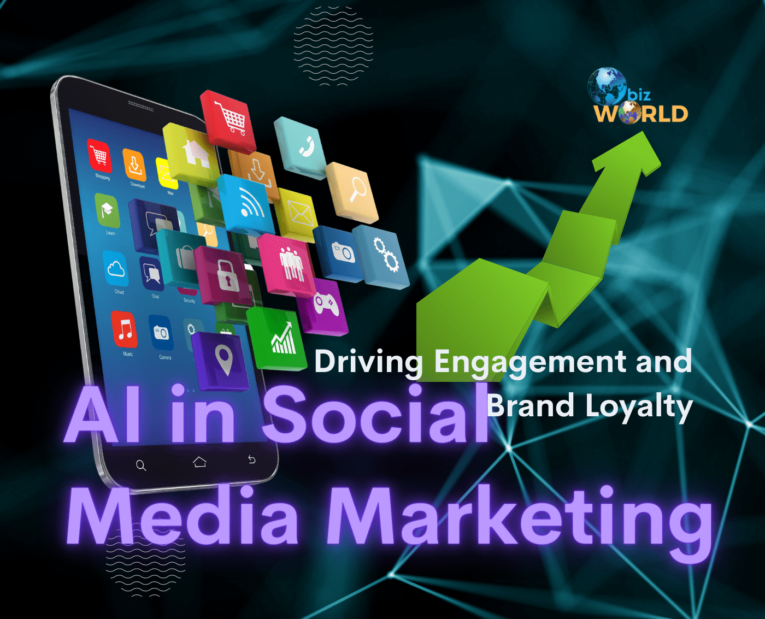In today’s digital age, social media has become an integral part of marketing strategies. With the rise of artificial intelligence (AI), businesses now have powerful tools at their disposal to drive engagement and foster brand loyalty on social media platforms. AI’s ability to analyze vast amounts of data, personalize content, and automate processes revolutionizes the way businesses interact with their target audience. In this article, we will explore the various use cases of AI in social media marketing and how it can help businesses thrive in the competitive digital landscape.

- 1. Introduction: The Impact of AI on Social Media Marketing
- 2. Personalized Content Recommendations: Enhancing User Experience
- 3. Intelligent Chatbots: Providing Real-Time Customer Support
- 4. Sentiment Analysis: Understanding Audience Sentiments and Feedback
- 5. Social Listening and Monitoring: Gaining Insights for Strategic Decision-Making
- 6. Influencer Marketing Optimization: Identifying the Right Influencers
- 7. Automated Ad Campaigns: Optimizing Targeting and Ad Performance
- 8. Image and Video Recognition: Enhancing Visual Content Strategy
- 9. Social Media Analytics: Extracting Actionable Insights
- 10. AI-Generated Content: Empowering Creativity and Efficiency
- 11. Voice Recognition and Natural Language Processing: Enabling Voice-Activated Engagement
- 12. Social Media Automation: Streamlining Publishing and Scheduling
- 13. AI-Powered Social Listening Tools: Identifying Trends and Emerging Topics
- 14. AI in Social Media Advertising: Targeting the Right Audience
- 15. Conclusion: Harnessing the Power of AI in Social Media Marketing
- FAQs
1. Introduction: The Impact of AI on Social Media Marketing
In this section, we will discuss the growing influence of social media marketing and the transformative impact of AI on this landscape.
2. Personalized Content Recommendations: Enhancing User Experience
Learn how AI algorithms can analyze user data to deliver personalized content recommendations, fostering a more engaging user experience.
3. Intelligent Chatbots: Providing Real-Time Customer Support
Explore how AI-powered chatbots can revolutionize customer support on social media platforms, providing quick and efficient responses to customer inquiries.
4. Sentiment Analysis: Understanding Audience Sentiments and Feedback
Discover how AI can analyze social media conversations and sentiment data, enabling businesses to gain valuable insights into audience opinions and preferences.
5. Social Listening and Monitoring: Gaining Insights for Strategic Decision-Making
Learn how AI-driven social listening tools can help businesses monitor conversations, identify trends, and make data-driven decisions.
6. Influencer Marketing Optimization: Identifying the Right Influencers
Explore how AI algorithms can identify the most relevant influencers for a brand, ensuring effective influencer marketing campaigns.
7. Automated Ad Campaigns: Optimizing Targeting and Ad Performance
Discover how AI can optimize social media ad campaigns by targeting the right audience and improving ad performance through automated processes.
8. Image and Video Recognition: Enhancing Visual Content Strategy
Learn how AI-powered image and video recognition can assist businesses in creating captivating visual content and improving brand storytelling.
9. Social Media Analytics: Extracting Actionable Insights
Explore how AI-driven analytics tools can extract valuable insights from social media data, helping businesses measure the success of their marketing efforts.
10. AI-Generated Content: Empowering Creativity and Efficiency
Discover how AI-generated content can enhance content creation processes, freeing up time for marketers to focus on strategy and creativity.
11. Voice Recognition and Natural Language Processing: Enabling Voice-Activated Engagement
Learn how AI technologies like voice recognition and natural language processing can facilitate voice-activated engagement on social media platforms.
12. Social Media Automation: Streamlining Publishing and Scheduling
Explore how AI can streamline social media publishing and scheduling, saving time and effort for social media managers.
13. AI-Powered Social Listening Tools: Identifying Trends and Emerging Topics
Discover how AI-powered social listening tools can help businesses identify emerging trends and topics, allowing them to stay ahead of the curve.
14. AI in Social Media Advertising: Targeting the Right Audience
Learn how AI can enhance social media advertising by accurately targeting the right audience and optimizing ad campaigns for maximum impact.
15. Conclusion: Harnessing the Power of AI in Social Media Marketing
Summarize the key takeaways of the article, highlighting the transformative potential of AI in driving engagement and brand loyalty on social media platforms.
FAQs
1. How can AI improve social media marketing? AI can improve social media marketing by personalizing content recommendations, providing real-time customer support through intelligent chatbots, and analyzing sentiments to understand audience feedback, among other use cases.
2. Can AI help identify the right influencers for my brand? Yes, AI algorithms can analyze data to identify the most relevant influencers for your brand, ensuring effective influencer marketing campaigns.
3. What role does AI play in social media advertising? AI plays a crucial role in social media advertising by optimizing ad campaigns, targeting the right audience, and improving ad performance through automation and data analysis.
4. How does AI enhance content creation on social media? AI-powered content generation tools can assist marketers in creating engaging and relevant content, freeing up time for strategy and creativity.
5. How can social media analytics powered by AI benefit businesses? Social media analytics powered by AI can extract valuable insights from social media data, helping businesses measure the success of their marketing efforts and make data-driven decisions.
In this comprehensive article, we have explored the various use cases of AI in social media marketing. From personalized content recommendations to intelligent chatbots, AI empowers businesses to drive engagement, enhance user experiences, and foster brand loyalty on social media platforms. By leveraging the power of AI, businesses can stay ahead in the competitive digital landscape and build strong connections with their target audience.


Fantastic beat I would like to apprentice while you amend your web site how could i subscribe for a blog site The account helped me a acceptable deal I had been a little bit acquainted of this your broadcast offered bright clear concept